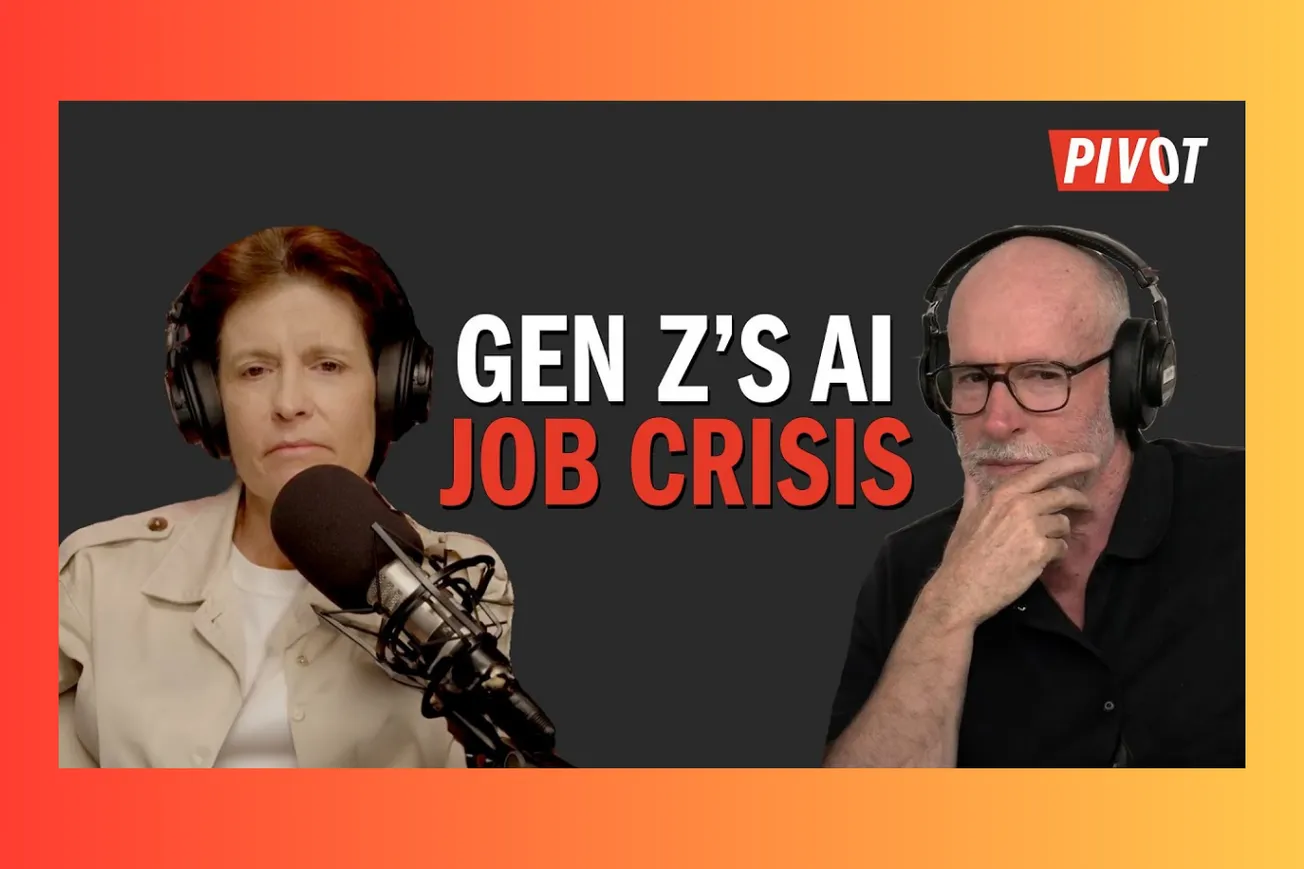Table of Contents
Don't panic about AI taking over—here's what industry experts say about building an AI-proof career that thrives alongside technology.
Key Takeaways
- Communication skills will always trump technical prowess when it comes to career advancement and long-term success
- Wide-ranging education beats hyper-specialization—encourage curiosity across multiple disciplines rather than forcing kids into narrow tech tracks
- Physical skills and creativity become more valuable, not less, as AI handles routine digital tasks
- The biggest mistake is trying to predict exactly which jobs will disappear—focus on adaptable foundational skills instead
- Young people who learn to use AI as a tool will outperform those who ignore it or fear it
- Real-world work experience teaches irreplaceable skills that no classroom or algorithm can provide
- Parents should stop engineering their kids' futures and start shepherding their natural interests and talents
The Real Question Isn't Whether AI Will Change Everything
Here's the thing—we're already living in the AI revolution, and panicking about it won't help anyone. When a veterinarian and NASA engineer called into the Pivot podcast recently, asking how their teenage sons could build "engaging and fulfilling careers" that won't disappear to automation, they touched on something every parent is secretly worrying about.
But Scott Galloway had the most sensible response I've heard: "I think it's unhealthy to try and predict the future and push your kids one way or the other." The guy's got a point. Remember when everyone was forcing their kids to learn Mandarin because China was supposedly taking over? How'd that work out?
The truth is, we're terrible at predicting which specific jobs will survive and which won't. What we can do is help young people develop skills that make them indispensable, regardless of what technology throws at them.
Communication Skills Are Your Secret Weapon
If Galloway could give his kids just one skill, it would be communication. Not coding, not data analysis—storytelling. "The difference between someone who does well and someone who does exceptionally well is their ability to capture people's attention and take data and create an arc and tell stories," he explains.
This isn't just career advice—it's survival strategy. Think about it: AI can crunch numbers, analyze patterns, even write basic reports. But can it look someone in the eye, read the room, and adjust its message based on subtle social cues? Can it inspire a team through a crisis or negotiate a complex deal where relationships matter more than facts?
Not even close.
The most successful professionals aren't necessarily the smartest—they're the ones who can take complex information and make it compelling to other humans. Whether you're writing grant proposals, pitching investors, or explaining why your medical diagnosis differs from the AI's recommendation, your ability to communicate will determine your value.
Cara Swisher emphasizes this too, noting how important it is for kids to engage with the physical world and develop those face-to-face conversation skills. "Your ability to engage people, look them in the eye, establish conversation" forms the foundation of everything else.
Why Trying to Outsmart the Future Is Pointless
Parents are driving themselves crazy trying to figure out which majors are "safe" from AI. Should their kids avoid radiology because AI can read X-rays? Skip law school because legal research is getting automated? Stop pursuing computer science because coding jobs might disappear?
Here's what's actually happening: there will be fewer radiologists, but the ones who remain will be more effective because they'll use AI tools. Fewer lawyers, but the surviving ones will handle more complex cases. Different programmers doing different kinds of work.
One of Swisher's sons figured this out early. He was interested in technology but recognized that "AI is going to replace all of computer programming" and switched to mechanical engineering—something that can't be easily automated. Smart kid, but the key point isn't that mechanical engineering is the "right" choice. It's that he was thinking strategically about how to complement technology rather than compete directly with it.
The pattern holds across industries. AI will eliminate routine tasks and create new opportunities for people who can work alongside it effectively.
The Broad Base Strategy Actually Works
Instead of forcing kids into narrow specializations, both Swisher and Galloway advocate for wide-ranging education. When Swisher's tech-oriented son was applying to colleges, they pushed him to consider broader options. He ended up at Michigan, taking linguistics courses, creating art installations, building elaborate floats that combined technology with creativity.
This isn't about being unfocused—it's about building multiple competencies that can connect in unexpected ways. The most valuable professionals of the future will be those who can bridge different domains, translating between technical specialists and business stakeholders, combining analytical insights with creative solutions.
"Even if he tended towards technology and my other son tended towards English and history, we wanted him to do more maths and experience a lot of things," Swisher explains. The goal isn't to create Renaissance polymaths, but to ensure young people have enough diverse knowledge to adapt as opportunities arise.
Physical Skills Become Premium Assets
Here's something most career advisors won't tell you: as AI handles more digital work, physical and hands-on skills become more valuable, not less. Swisher is adamant about this—"encourage sports because that's teamwork, that's physical stuff, it's out of your head because these kids are so much in their head and so much on the screen."
This extends beyond athletics. Cooking, construction, automotive repair, craftsmanship of any kind—these represent irreplaceable human capabilities. You can't download experience with materials, spatial reasoning, or the subtle judgments that come from working with your hands.
Galloway makes a related point about vocational education: "One of the biggest mistakes we did in public schools was removing civics and wood shop and auto shop and metal shop and replacing it with computer science." Those practical skills create pathways to good careers that AI can't easily disrupt.
Work Experience Teaches What School Cannot
Both hosts strongly advocate for young people getting real jobs as early as possible. Swisher's son worked at a specialty grocery store and learned crucial lessons: "how to show up on time, show up for a job, finish things, clean up things, and give them respect for engagement with the general public."
These aren't abstract skills you can learn from textbooks or online courses. They're the messy, human realities of workplace dynamics, customer service, problem-solving under pressure, and professional accountability.
Galloway's son has a summer internship and regularly calls with workplace dilemmas—exactly the kind of real-world education that prepares someone for career success. "You have to fail, I think, in a lot of ways," Swisher notes. Better to experience those failures in low-stakes environments while you're young.
The AI Integration Advantage
Instead of fearing AI, smart young people should be learning to use it effectively right now. Swisher encourages her kids to "use AI and try it and deploy it" because the professionals who thrive will be those who can leverage these tools, not those who ignore them.
This isn't about becoming an AI specialist—it's about understanding how to incorporate AI capabilities into whatever field you choose. The veterinarian who can use AI for diagnostic support, the writer who employs AI for research and editing, the designer who integrates AI-generated elements into creative projects.
The key insight: "There's going to be fewer lawyers, but the lawyers that are there are going to do better because they use this technology." This pattern will repeat across industries.
What Parents Should Actually Do
Stop trying to engineer your children's futures. As Galloway puts it, "We're not engineers, we're shepherds. We can decide where they graze, we can point them in one direction, and we kind of get some influence on what they eat, but they come to you out of nowhere."
His sons developed interests in biology and technology completely independently. Swisher's kids gravitated toward different combinations of technical and creative pursuits. The parental role is to expose them to diverse experiences and support their natural inclinations, not to force them down predetermined paths.
Practical steps include: ensuring strong foundational skills in reading, writing, and arithmetic; encouraging diverse extracurricular activities; providing opportunities to work with different materials and in different environments; and most importantly, modeling curiosity and adaptability yourself.
The Technology Excitement Paradox
Here's something interesting that emerged from the podcast: young people today are experiencing technology fatigue in ways previous generations didn't. Felipe, calling from Bangkok, noted how product launches used to generate genuine excitement—remember waiting for Steve Jobs to pull something unexpected from his pocket?
Now everything leaks on social media beforehand. We know what's coming before it's announced. The sense of wonder has diminished because we're overwhelmed by constant incremental updates rather than transformative breakthroughs.
This creates an opportunity for young people who can step back from the hype cycle and focus on substance. While everyone else is chasing the latest AI trend, there's value in developing deep expertise in foundational areas that will remain relevant regardless of which specific technologies dominate.
The most successful professionals will be those who can evaluate new tools critically, adopt what's genuinely useful, and ignore the noise.
The job market will keep evolving, but human skills—communication, creativity, adaptability, and the ability to build relationships—will remain at the center of every successful career. Instead of worrying about competing with AI, focus on becoming the kind of person who makes AI more valuable.





